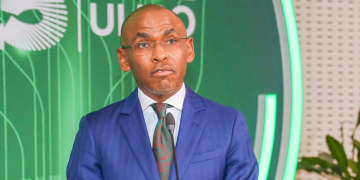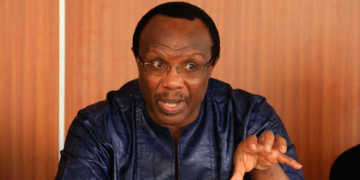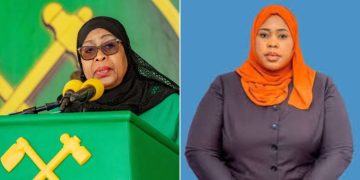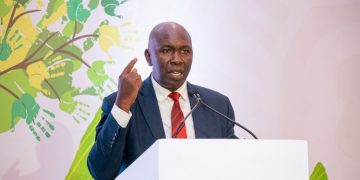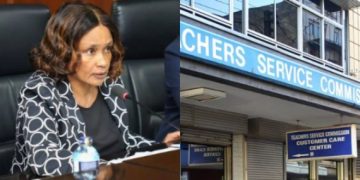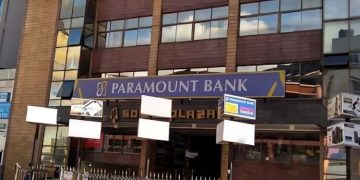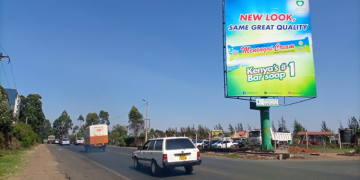Between 1950 and 2023, 486 attempted or successful military coups were carried out worldwide. Africa is the bad boy, accounting for the largest number with 214 (44%).
The number of successful military coups in Africa, at 106, comprises a success rate of 44%. Can conscious and deliberate investments in strong alternating multiple democracies, governments in waiting, and shadow cabinets be the panacea bulwark?
Can these political frameworks guarantee Africa’s replication of the economic miracles by the Asian Tiger economies ( Singapore, Hong Kong, South Korea, Taiwan), Asian Tiger Cubs (Indonesia, Malaysia, Thailand, Vietnam, Philippines), China, Mauritius, as well as Brazil and Chile in Latin America, and Puerto Rico? Can these political investments forestall military takeovers when youth urban social protests bring down governments?
Ari Aisen and Francisco Jose Veiga’s paper on ‘’How Does Political Instability Affect Economic Growth?’’ noted many economic, social, and security consequences of frequent cabinet changes, regime, and political instability indices.
Political instability was found to adversely affect growth by lowering factor productivity growth rates as well as accumulation of physical capital and human capital due to lower savings and investment rates, as well as lower budgets for education and health sectors, and international brain drain as educated and skilled elite leave their homelands for stable and opportunity-laden countries. Other studies have noted the harmful effects of volatility resulting from frequent policy changes, while the short-termist horizons of policymakers often lead to suboptimal policies.
Rampant unemployment, poverty (low per capita income with many below the national poverty line), income inequalities (high Gini coefficient), and low financial sector development, as indicated by low or nonexistent market capitalization as a percent of GDP and low domestic credit by banks as a percent of GDP, characterize banana republics. GDP and per capita income growth are lower in countries with a higher probability of state failure.
Higher political risks increase the country’s risk premiums, leading to lower foreign direct investment when the sovereign credit rating is downgraded by Moody’s, Standard & Poor’s, or Fitch. High inflation and local currency depreciation are associated with political instability. Unstable countries are havens for all forms of crimes committed by police, intelligence services, national defense forces, gangs and goons, terrorism, money laundering, etc. Weakening of Governance, Justice, Law and Order Sector (GJLOS) and diversion of taxpayers’ money through corruption or national security budget ’’crowding out’’ both CAPEX infrastructure development and social spending budgets is common in failed governments.
Africa’s Governance Challenges Exacerbated by Military Coups
The 2014-2023 data from the Mo Ibrahim Index of African Governance (IIAG) show that Africa improved by only one percent to post an overall governance score of 49.3 in 2023, across security and rule of law, participation, rights and inclusion, and Foundations for economic opportunity and human development.
Seychelles had the highest governance score at 75.3% while Mauritius was second at 72.8%. Guinea’s governance score tumbled by–0.3% to 41.9% following the 2021 military coup by Mamady Doumbouya. South Sudan deteriorated by –ve 0.8% to posit the lowest governance score in Africa of 19% due to civil wars.
Mali’s overall governance score fell by 4.6% to 43.2% after the 2021 military coup led by Colonel Assimi Goïta. Burkina Faso’s overall governance score regressed by 3.9% to 51% following the 2022 military takeover under Ibrahim Traoré. DRC contracted by –ve2.5% to a low of 32.8%. Niger’s governance score regressed by–2.5% to 47.9% following the 2023 military coup led by Abdourahamane Tchiani.
Africa’s Actual and Perceived Political Risk
The Political Risk Services (PRS) International Country Risk Guide (ICRG) methodology comprises twelve components of political risk assessment. Government stability is a government’s ability to carry out its declared program(s) and its ability to stay in office as measured against government unity, legislative strength, and popular support. South Sudan, after the civil war, South Africa’s African National Congress (ANC), following its loss of parliamentary majority, Kenya, after the June 2024 Gen-Z protests, and the DRC, after the escalation of the Eastern DRC crisis, have adopted broad-based governments of national unity (GNU).
Socioeconomic pressures (poverty, unemployment, consumer confidence) could constrain government action or fuel social dissatisfaction. Following their loss in the 2022 elections, the Azimio Coalition in Kenya led cost-of-living protests amid high inflation and currency depreciation.
Risks to the investment profile of the country include contract viability/expropriation, profits repatriation, and payment delays. Mineral-rich countries, such as the DRC, often experience the suspension of mining contracts when new regimes take over. Kenya’s Office of the Controller of Budget (OCOB) puts public sector pending bills to private sector suppliers by the national government on 30th June 2025 at KShs. 524.84 billion and county governments at KShs. 176.80 billion. Internal conflict is assessed based on civil war/coup threat, terrorism/political violence, and civil disorder.
External conflict is assessed in terms of war, cross-border conflict, and the extent of foreign pressures. Eastern DRC civil war pits the government and its allies versus M23, while neighboring countries like Rwanda, Uganda, and Burundi have deployed their armed forces in DRC to protect their national interests. The Sudanese Armed Forces (SAF) led by General Abdel Fattah al-Burhan and the paramilitary Rapid Support Forces (RSF) led by General Mohamed Hamdan Dagalo “Hemedti” are fighting to control Sudan (Khartoum).
Corruption within the political system poses a threat to foreign investment by distorting the economic and financial environment. It reduces the efficiency of government and business by enabling individuals to assume positions of power through patronage rather than merit, and introduces an inherent instability into the political process. The 2024 Transparency International Corruption Perceptions Index (CPI) ranked six African countries among the bottom ten most corrupt out of 180 countries worldwide. South Sudan was ranked last at 180th with a score of 8%, Somalia ranked 179th with a score of 9%, Libya/Eritrea/Equatorial Guinea ranked 173rd with a score of 13%, and Sudan ranked 170th with a score of 15%.
Military participation in politics (government takeover, threat of takeover, or full-scale military regime) diminishes democratic accountability, as the military is not elected by anyone. High defense allocations may ‘crowd out’ CAPEX and social spending, leading to corruption and armed resistance.
Eight out of the 54 countries in Africa (14.8%) are ruled by military governments i.e. Burkina Faso, Chad, Gabon, Guinea, Mali, Madagascar, Niger, and Sudan. Libya has two rival governments with the the internationally recognized Government of National Unity (GNU) based in Tripoli, led by Prime Minister Abdul Hamid Dbeibeh, and the Government of National Stability (GNS) based in the east, which is supported by the House of Representatives and the Libyan National Army (LNA). African governments whose presidents once served in the military include Congo Brazzaville, Egypt, South Sudan, Rwanda, Burundi, and Uganda.
Religious tensions may arise from some groups trying to dominate governance, curtail religious freedom and replace civil law by religious. Boko Haram and Islamic State West Africa Province (ISWAP) insurgency has wrought violence, humanitarian crisis, and displacement in Nigeria, Cameroon, Chad, and Niger. Harakat al-Shabaab al-Mujāhideen is a Sunni Islamist militant and political movement based in Somalia seeking to create the Islamic Emirate of Somalia. Ethnic tensions arise from divisions on language, race, or nationality.
The institutional strength and quality of the civil service bureaucracy serve as a shock absorber, minimizing revisions to public policy when governments change. Law and order are assessed from the strength and impartiality of the legal system and the popular observance of the law. The lowest-ranked African countries in the Mo Ibrahim Index of African Governance (IIAG) security and rule of law index in 2023 are Sudan (20.2%), Eritrea (21.9%), Somalia (23.4%), and the DRC (25.3%).
Democratic accountability is a measure of how responsive a government is to its people, with less responsive governments falling peacefully in democratic societies or violently in non-democratic states. The types of political governance range from alternating democracy, dominated democracy, de facto one-party state, de jure one-party state, to autocracy. Africa’s leading democracies include Ghana, where the National Democratic Congress (NDC) and the New Patriotic Party (NPP) alternate in providing leadership. In Malawi, the Malawi Congress Party (MCP), the Democratic Progressive Party (DPP), and the Peoples Party (PPP) have alternated in producing the last three presidents.
Governments Which Emerged After the Global Gen Z Revolts
The risk of military takeover after youth unrest is real, and the consequences would be catastrophic for any nation. Countries with strong alternating multiparty democracies, governments in waiting, and shadow cabinets stand a high chance of thwarting military coups when youth protests lead to the collapse of governments. Sri Lanka’s Aragalaya protests, which took place between 15 March and 14 November 2022, over corruption, gross economic mismanagement, nepotism, and the unpopularity of the ruling family, led to the collapse of the government as the Prime Minister, President, and cabinet resigned. United National Party (UNP) Former Prime Minister Ranil Wickremesinghe was appointed Prime Minister by the president, who resigned, and later as President by parliament, till 2024, when he lost the elections to Anura Kumara Dissanayake of the non-mainstream National People’s Power (NPP) party.
Also Read: Senior U.S. Military Officials Caught on Camera Playing with Syrian President Ahmad al-Sharaa
Protests against the Kenya Finance Bill 2024, which took place between 18 June and 8 August 2024, led to the revocation of the bill, the reconstitution of the cabinet, and the formation of a broad-based government between the ruling UDA party and ODM, aimed at supporting the government’s legitimacy and stability. Bangladesh’s university students’ July Revolution over 1 July – 5 August 2024 over authoritarianism, human rights abuse, economic depression, controversial job quota system, and the July massacre led to the fall of Prime Minister Sheikh Hasina’s government, a constitutional crisis, and creation of an interim government of the highly respected 85-year-old Nobel Prize Winner Professor Muhammad Yunus of Grameen Bank.
The 2025 Nepalese Gen Z protests between 8–13 September 2025 over corruption and nepotism led to the resignation of Prime Minister K. P. Sharma Oli, the fall of the government, the dissolution of the House of Representatives, and the lifting of the social media ban, with the highly respected former chief justice Sushila Karki serving as interim prime minister. Madagascar’s 2025 Malagasy protests between 25 September and 14 October 2025 over the high cost of living led to the dissolution of the Ntsay government. President Andry Rajoelina was exiled and impeached in a military coup d’état, with Colonel Michael Randrianirina as interim president.
Lessons for Africa from the USA and the UK
Alternating democracy governments are characterized by a government/executive that has not served more than two successive terms, free and fair elections for the legislature and executive as determined by constitution or statute, active presence of more than one political party and a viable opposition, evidence of checks and balances among the three elements of government: executive, legislative and judiciary, evidence of an independent judiciary, and evidence of the protection of personal liberties through constitutional or other legal guarantee. In the USA, Democrats/Democratic-Republicans have won 29 US presidential elections, Republicans 24, Whigs 2, and Federalists 1. In the UK, the Conservative Party has won 17 elections before 1834 and 32 more to date, for a cumulative total of 49 wins, while the Labour Party has won 11 in its history.
The current UK His Majesty’s Official Opposition (The Shadow Cabinet and Government in waiting) has 26 members of the Conservative Party. Mrs Kemi Badenoch if the Leader of HM Official Opposition, Sir Mel Stride is the Shadow Chancellor of the Exchequer, Richard Fuller is the Shadow Chief Secretary to the Treasury, Priti Patel is the Shadow Secretary of State for Foreign, Commonwealth and Development Affairs, and Chris.
Philp is the Shadow Home Secretary. Laura Trott is the Shadow Secretary of State for Education, Alex Burghart is the Shadow Chancellor of the Duchy of Lancaster, James Cartlidge is the Shadow Secretary of State for Defence, Sir James Cleverly is the Shadow Secretary of State for Housing, Communities and Local Government, Helen Whately is the Shadow Secretary of State for Work and Pensions while Andrew Griffith Shadow Secretary of State for Business and Trade.
Also Read: The Coups, The Judge and The Trial: Burkinabe Bar Pokes Fun at Chaos
Claire Coutinho is the Shadow Secretary of State for Energy Security and Net Zero, Robert Jenrick is the Shadow Secretary of State for Justice, Stuart Andrew is the Shadow Secretary of State for Health and Social Care, Nigel Huddleston is the Shadow Secretary of State for Culture, Media and Sport, Victoria Atkins is the Shadow Secretary of State for Environment, Food and Rural Affairs. Mr Richard Holden is the Shadow Secretary of State for Transport, Julia Lopez is the Shadow Secretary of State for Science, Innovation and Technology, Mims Davies is the Shadow Secretary of State for Wales, Andrew Bowie is the Shadow Secretary of State for Scotland, Alex Burghart is the Shadow Secretary of State for Northern Ireland, and Jesse Norman is the Shadow Leader of the House of Commons.
Lord True is the Shadow Leader of the House of Lords, Neil O’Brien is the Shadow Minister (Policy Renewal and Development), Rebecca Harris is the Opposition Chief Whip (Commons), and Baroness Williams of Trafford is the Shadow Chief Whip (House of Lords).
Way forward for Africa
The USA and UK meet the criteria of strong alternating multiparty democracies with governments in waiting and shadow cabinets. African countries can target to emulate these best practices by mainstreaming strong multiparty democracy, governments in waiting, and shadow cabinets to fortify against political instability and military coups.
These political miracles can lead to more stability and economic miracles as African countries target to transition low per capita income level (Below USD$1,136 per citizen per an annum), lower middle per capita income (USD$1,136 – USD$4,495), upper middle per capita income (USD$4,496 – USD$13,935) and ultimately into industrialized high per capita income states grossing over USD$13,935 per African per year.


